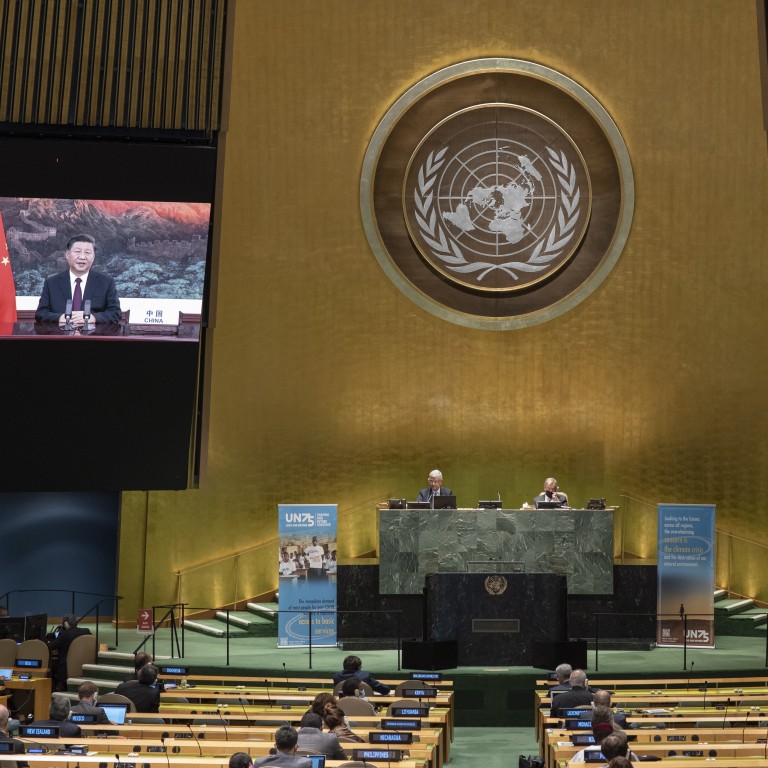
US-China acrimony at 75th UN General Assembly as Trump slams Beijing for coronavirus and Xi decries ‘stigma’
- In pre-recorded addresses, Donald Trump assails China for coronavirus ‘plague’ while Xi Jinping calls for multilateralism – but is often just as pointed
- ‘We are moving in a very dangerous direction,’ says António Guterres, the UN secretary general
US-China acrimony loomed large at the 75th session of the United Nations General Assembly on Tuesday, with US President Donald Trump using his speech to lash out at China, and Chinese leader Xi Jinping warning the world to avoid “stigmatisation” over the Covid-19 coronavirus pandemic.
In pre-recorded addresses to the assembly – held virtually this year because of the pandemic – the leaders of the world’s two largest economies offered sharply differing visions of the international order, which seem only to have intensified during the coronavirus.
Trump condemned China in his address, saying the country had “unleashed” the coronavirus on the world and polluted the environment at extreme levels with impunity.
“We have waged a fierce battle against the invisible enemy: the China virus,” Trump said. “We must hold accountable the nation which unleashed this plague onto the world.”
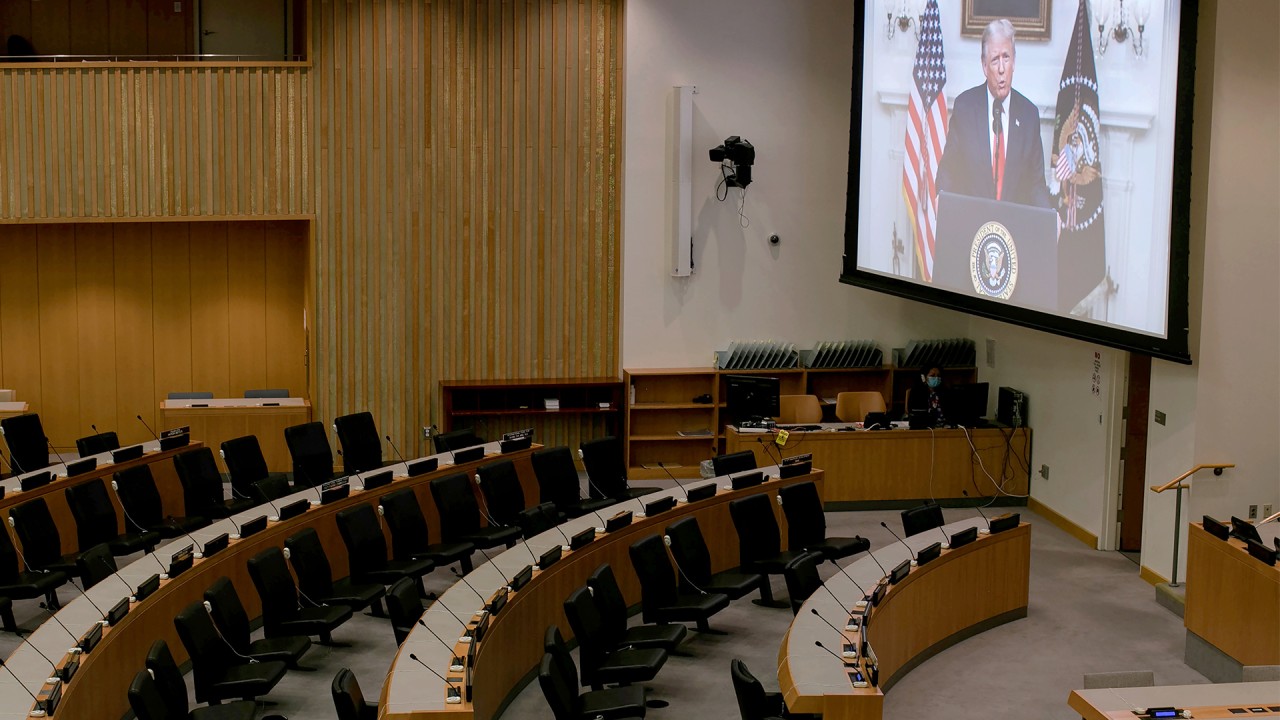
00:34
Trump says UN must ‘hold China accountable’ for Covid-19
His comments came as the Johns Hopkins University count of coronavirus-related fatalities in the US passed 200,000, far more than any other country has endured.
Trump also accused China of dumping “millions and millions of tons” of trash into the oceans, of overfishing, and of polluting the world’s air. Trump has faced intense criticism in the US for his own efforts to weaken environmental protection regulations.
“Those who attack America's exceptional environmental record while ignoring China's rampant pollution are not interested in the environment,” said Trump. “They only want to punish America.”
Xi’s speech took on a different tone, calling for multilateralism, peace and collaboration – but was at times just as pointed.
Without naming the US, he warned against “stigmatisation” and called for the “full play” of the World Health Organization (WHO), the UN’s health agency, in leading the world out of the pandemic.
“We should follow the guidance of science, give full play to the leading role of the World Health Organization and launch a joint international response to this pandemic,” Xi said. “Any attempt of politicising the issue or stigmatisation must be rejected.”
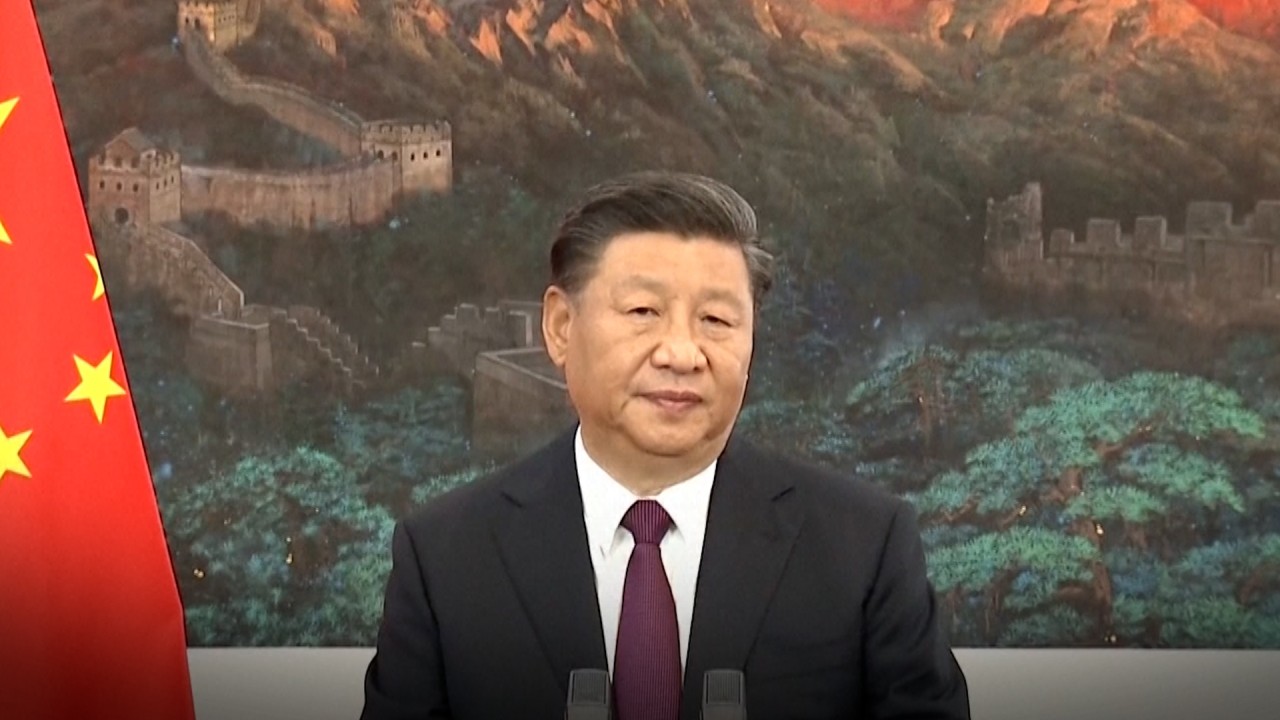
01:14
President Xi Jinping calls for global cooperation on Covid-19 in UN 75th anniversary speech
Xi also urged countries not to bury their heads in the sand “like an ostrich” to avoid globalisation, adding that countries should respect the World Trade Organization too, which the Trump administration has undercut by blocking appointments to its appellate body.
But Zhang Jun, China’s ambassador to the UN, took a more fierce tone, saying the US had abused the organisation’s platform to spread “groundless accusations”.
Zhang said China had held an “open, transparent and responsible attitude” during the outbreak, while the US – which saw its coronavirus death toll top 200,000 on Tuesday – was a “complete failure”.
“The US noise is incompatible with the general atmosphere of the General Assembly,” he said. “When the international community needs a strong United Nations, the United States is weakening the UN, the WHO and other UN bodies and undermining the authority and effectiveness of the UN.”
Trump pulled the US out of the WHO earlier this year, blaming the agency for deferring to Beijing. In his speech on Tuesday, Trump described the WHO as being “virtually controlled” by China.
He also reaffirmed a central theme of his presidency and campaign for re-election, saying he was “proudly putting America first, just as you should be putting your countries first”.
Xi Jinping to push multilateral line in UN’s virtual meetings
Neither stance was new for the two men, but that the intensifying rivalry continued to play out for the world to watch was the latest signal of just how far US-China relations have fallen since the first outbreak occurred in December in the Chinese city of Wuhan.
In his remarks to the General Assembly, António Guterres, the UN secretary general, described the coronavirus as an apocalyptic “fifth horseman” rocking an already unstable world, and – without naming the two countries – implored the US and China not to destabilise it further with a new cold war.
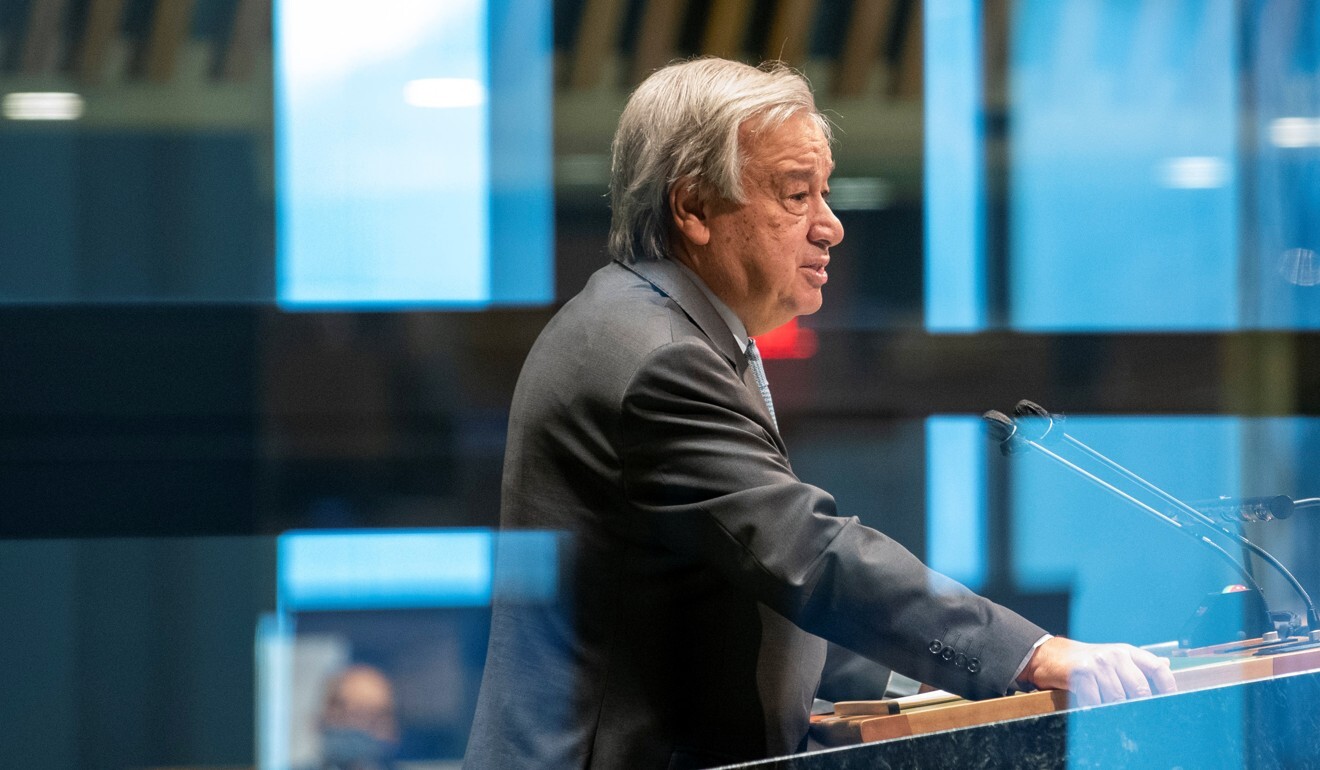
“We are moving in a very dangerous direction,” Guterres said. “Our world cannot afford a future where the two largest economies split the globe in a great fraction, each with its own trade and financial rules and internet and artificial intelligence capacities.”
Foreign policy analysts said that both leaders were disingenuous in their remarks.
Diana Fu, who teaches political science at the University of Toronto, described the spectacle of the two General Assembly speeches as “bullies duking it out on the stage of the United Nations”.
“The American bully, personified by Trump, is ostentatiously attacking its rival by stigmatising it as a global virus,” she said. “The other is attacking its opponent by paying lip service to multilateralism while actually playing by its own rules.”
Scott Moore, the director of the Global China Programme at the University of Pennsylvania, said that the same could be said about Trump’s comments about China’s environmental record.
“Every serious environmental scholar and advocate I know would have plenty to say about the shortcomings of both countries, especially re climate change,” he said.
“China has been able to take more credit for its environmental policies than it deserves on the basis of concrete outcomes”, Moore added, “simply because the US simply refuses to meaningfully participate in major multilateral institutions like the UN-led climate negotiations.”
Indeed, Trump boasted in his speech about withdrawing the US from the UN’s Paris Climate Agreement, which he called “one-sided”.
Tuesday marked the second consecutive day of the US-China rivalry playing out at the UN.
“The UN has stood one test after another and emerged with renewed vigour and vitality,” he said. “China will continue to be a true follower of multilateralism.”
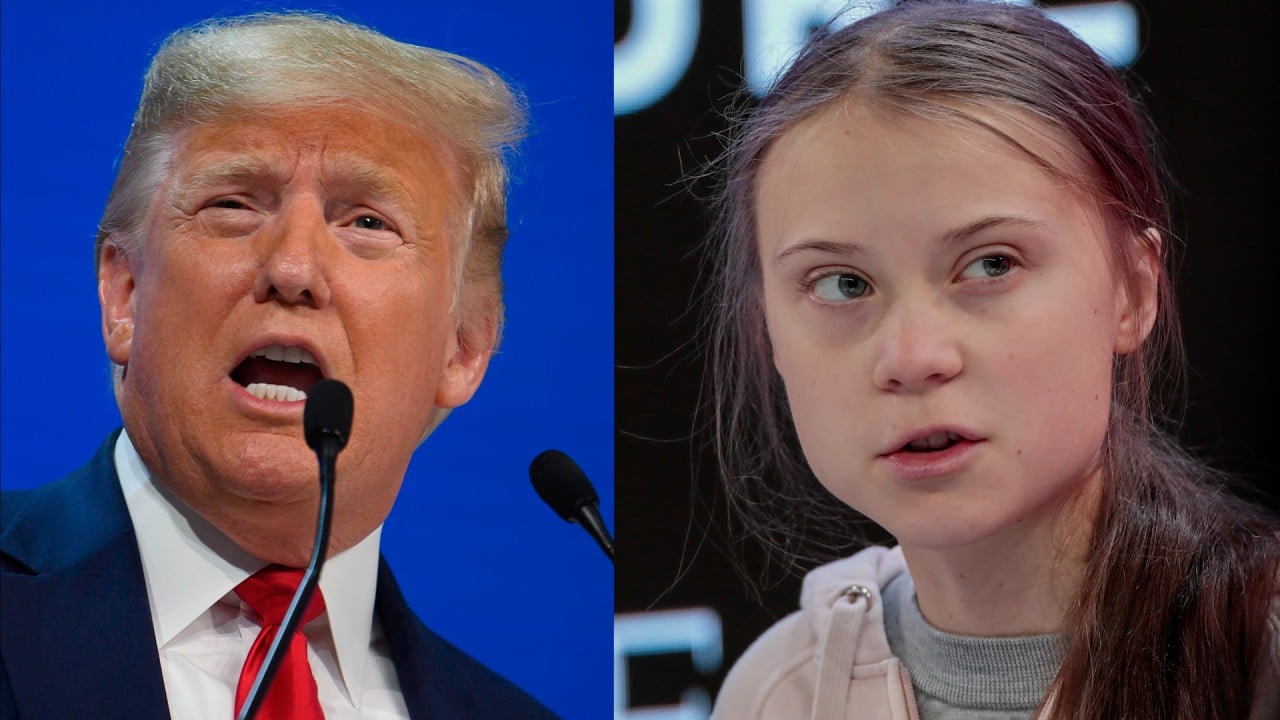
03:16
Trump and Greta Thunberg clash over climate issues at World Economic Forum in Davos
On Tuesday, Xi built on that theme, also calling for countries to face the challenges brought by economic globalisation, such as the gap between the rich and the poor and the development gap, uphold the concepts of openness and tolerance, and oppose unilateralism and protectionism.
He said the world needed to embrace green development and declared that China would strive to reach the peak of carbon dioxide emissions by 2030, and strive to achieve carbon neutrality by 2060.
Trump was also expected to speak at the Monday event but was a no-show.
Instead, the US acting deputy permanent UN representative, Ambassador Cherith Norman Chalet, spoke, accusing the UN of being resistant to meaningful reform, lacking transparency and being vulnerable to “the agenda of autocratic regimes and dictatorships”.
“For the Trump administration, this anniversary is an important moment to mark the many successes of the United Nations, but to do so with clear eyes and a renewed determination to see this important body serve its intended purpose,” she said.
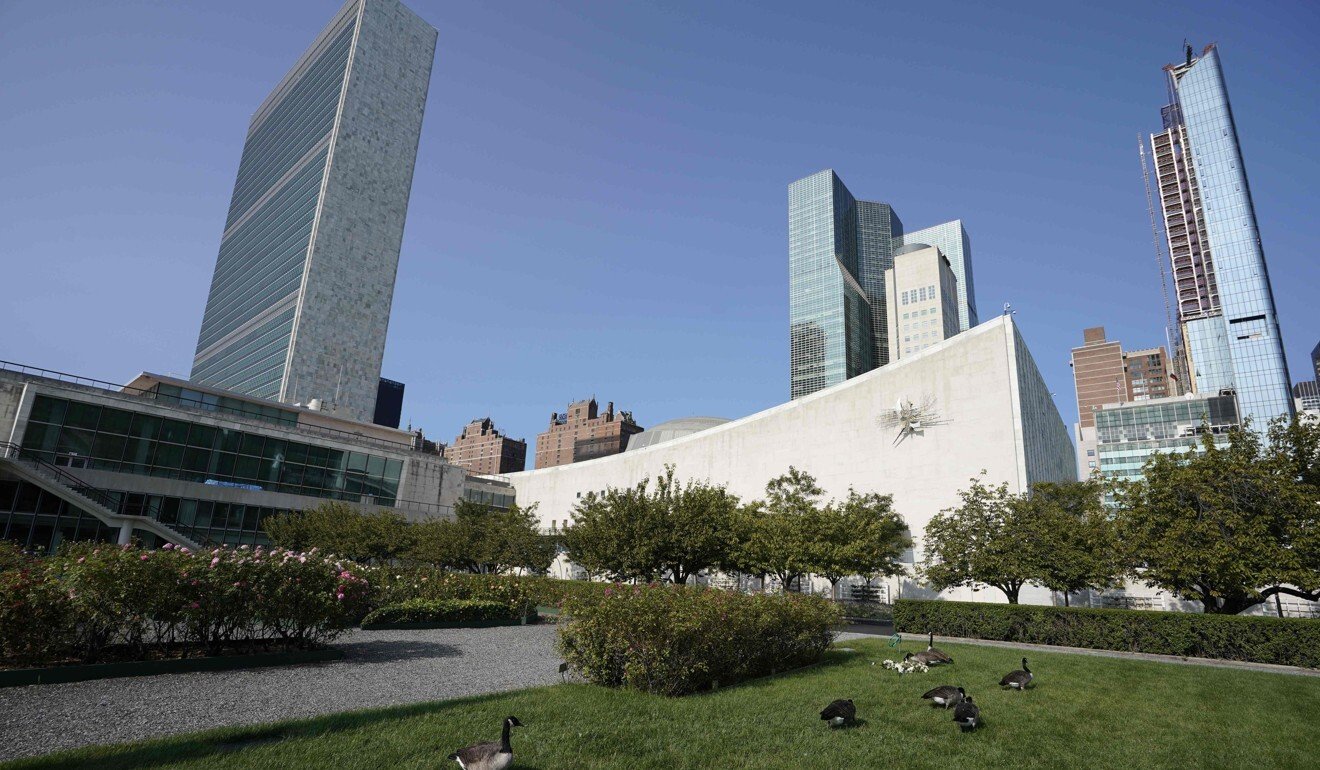
Amid fears of a new cold war brought on by the China-US rivalry, Beijing has sought to expand its global influence while the Trump administration has sparred with multilateral institutions.
This has accelerated in recent months as differences over the coronavirus pandemic, trade, technology, as well as Beijing’s actions in Taiwan, Hong Kong, Xinjiang and the South China Sea have grown.
UN set to become latest forum for US-China rivalry
Trump’s General Assembly speech featured more pointed criticism of China than in his previous three speeches there.
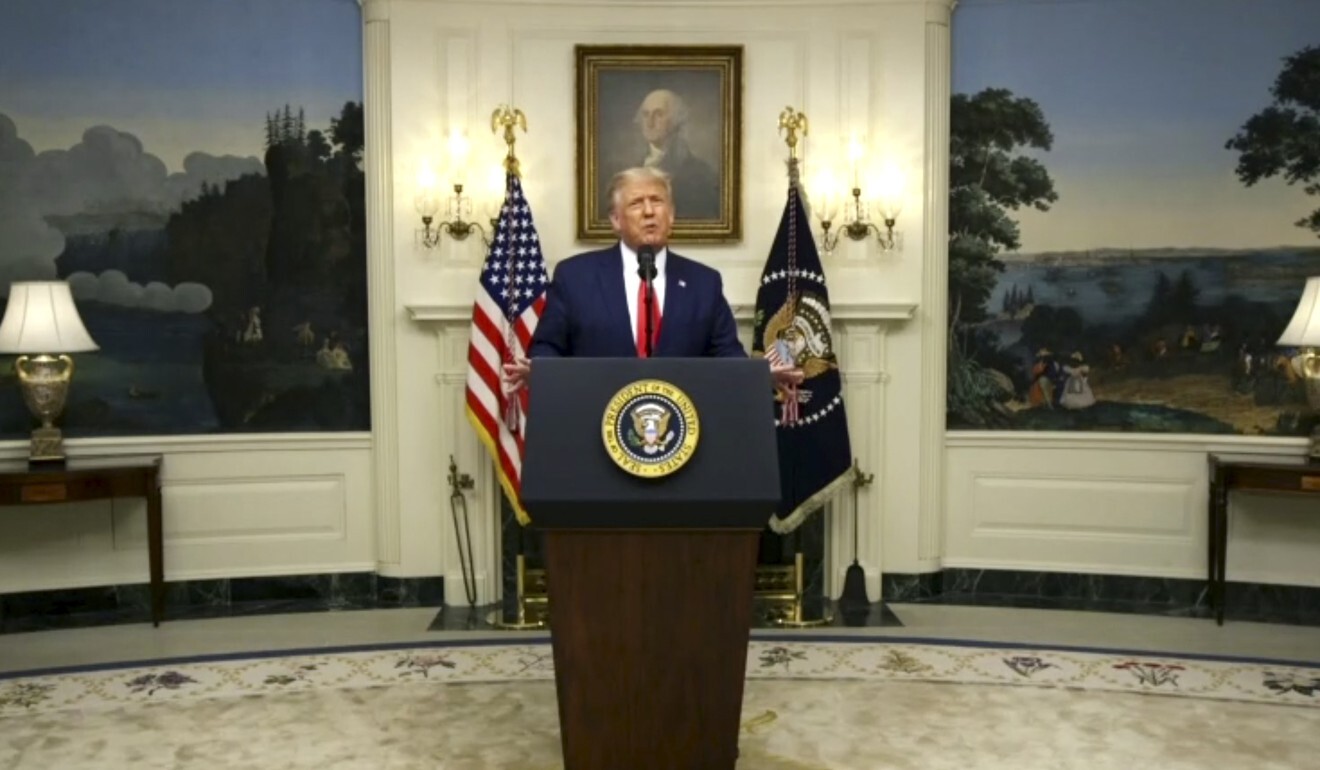
In his first address in 2017, Trump mentioned China just once: to thank the country for supporting sanctions against North Korea. (He threatened to “totally destroy” North Korea in the same speech.)
In passing, Trump also mentioned “threats to sovereignty” in the South China Sea, but did not name China or any other specific countries.
In his 2018 address, Trump again thanked China for supporting diplomacy with North Korea and spoke of his “friend” Xi Jinping.
But that year, he also announced broad tariffs on Chinese imports and accused China of cheating the US with unfair trade policies.
At last year’s General Assembly, Trump took aim at China for failing to liberalise its economy and uphold democratic freedoms in Hong Kong. He also spoke at length about the need to defend national interests and sovereignty.
“The future does not belong to globalists,” Trump said. “The future belongs to patriots.”
In contrast, China’s top diplomat, Wang Yi, last year stressed the need to ward against unilateralism and protectionism, insisting that the permanent members of the UN Security Council – including China and the US – needed to “lead by example” to maintain the international system.
“The international order needs to go by laws and rules, and acts in violation of international norms can only plunge the world into chaos,” he said.
Additional reporting by Robert Delaney



.jpg?itok=H5_PTCSf&v=1700020945)